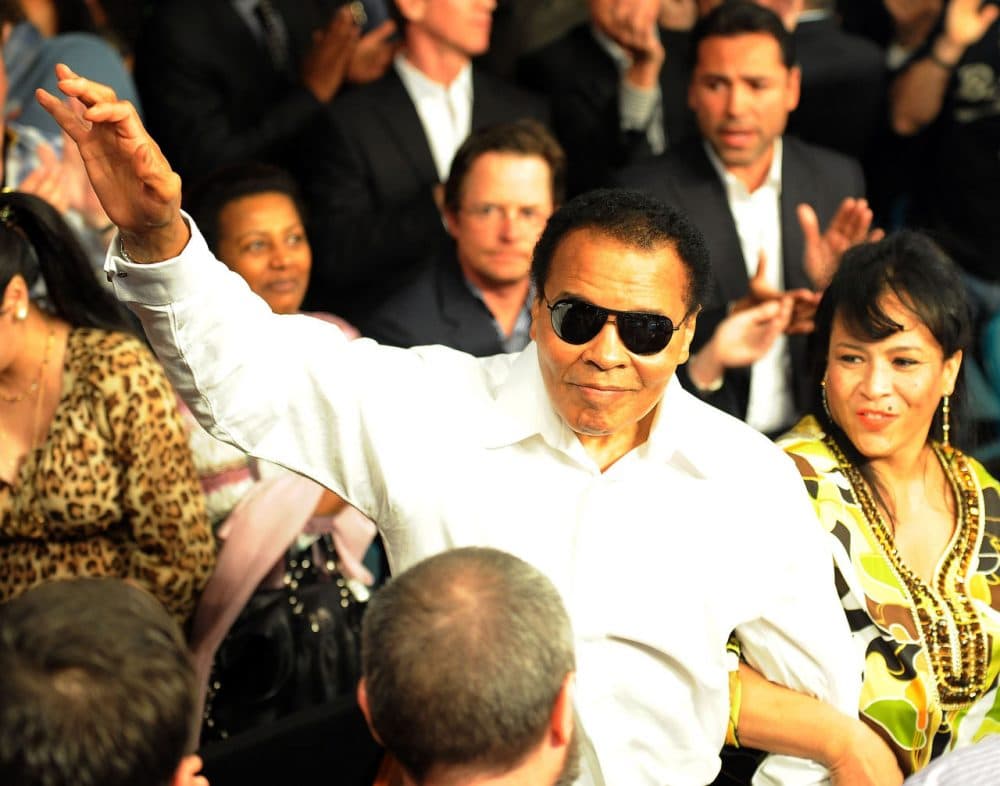Advertisement
Littlefield: Remembering Muhammad Ali
Resume
Muhammad Ali is dead.
At the height of his fame, he may have been the most recognizable person on the planet.
The champ himself certainly subscribed to that notion. He once said, “My only fault is that I don’t recognize how great I am.”
He was, in some respects, a walking — sometimes a dancing — contradiction.
Faster and quicker than a heavyweight boxer had any right to be, he was a ferocious competitor. There is a famous photograph of Ali looming over the supine Sonny Liston. A belligerent, taunting Ali appears to be challenging Liston, who looks as if he’s in the process of realizing how stupid it would be for him to get up.
Ali was also canny enough to realize that in order to beat the much younger George Foreman, he’d have to offer Foreman the opportunity to beat himself. So, to the dismay of his trainers, who had no idea why he was allowing Foreman to whale away at him, Ali accepted round after round of punishment. Then he stepped away from the ropes, slid past his exhausted younger opponent, and won the fight.
Ali’s impact on boxing was extraordinary. Millions of people who’d otherwise not have known or cared who held the heavyweight crown knew all about Ali.
Or they thought they did.
He became a symbol of protest against the war in Vietnam, a symbol of Black power, a symbol of any person’s right to define him or herself rather than accept limitations and labels cranked out by sports writers, politicians, or righteous bureaucrats.
He charmed people everywhere he went, and he knew it. He told the world he was beautiful, and he got away with it, because he was. Who can imagine another champion of the world topping off the evening during which he won an especially brutal bout in the African heat by entertaining small children with his magic tricks?
I done wrestled with an alligator, I done tussled with a whale; handcuffed lightning, thrown thunder in jail; only last week, I murdered a rock, injured a stone, hospitalized a brick; I’m so mean I make medicine sick.
Muhammad Ali
There are stories about his appetites, excesses, and missteps, and some of those stories are grim. Very little that he did went unexamined. He made what amends he could make.
But there are also many stories about the friendships he established, the causes he embraced, and the message he came to embody. That message had to do with endurance, and it had to do with love and acceptance. If the representation of those virtues seems ironic, given what he accomplished over and over in the ring long past the time when he might better have retired, that only underscores the complexity of the man and his legacy.
The irresistible temptation in an appreciation of Muhammad Ali is to turn to his own words. Remembering some of them is great fun. When he was still in the ring, he once said: “I done wrestled with an alligator, I done tussled with a whale; handcuffed lightning, thrown thunder in jail; only last week, I murdered a rock, injured a stone, hospitalized a brick; I’m so mean I make medicine sick.”
You can’t take that seriously, can you? You’re laughing too hard to do it. He was, too.
On another occasion, perhaps in response to various people who wished he’d shut up, Ali said, “A rooster crows only when it sees the light. Put him in the dark and he’ll never crow. I have seen the light and I’m crowing.”
The crowing stopped some time ago. Parkinson’s robbed the champ of the voice he made famous and notorious. But what a joy to remember the outsized life he lived and the best elements of the message he carried into old age.
This segment aired on June 4, 2016.
